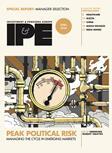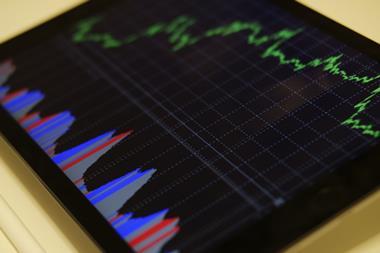The Taiwan stock market has witnessed a strong bull run led by the export driven electronics sector with the exchange recently peaking at above 10,000 points, prompting an increase in interest rates.
The market has now fallen below 10,000 points but the Central Bank has been concerned about its growth since it passed 8500, according to Joe Kao an analyst at Jardine Fleming in Taipei.
Kao explains: For the short term the market has been im-pacted by the central bank's monetary policy but medium term with the weak dollar, a forthcoming election and a change in the cabinet, we consider the government will want a bullish policy on the economy." This, he believes, should restrict interest rates in the medium term.
Henry Chan an investment analyst covering the greater China markets at LGT Asset Management in Hong Kong and Vincent Lai Fund Manager at China Securities In-vestment Trust Corporation in Taipei both believe that the market is overheated.
Chan says: "The market is being driven by the electronic stocks and in terms of the valuation is expensive at the moment but it is a liquidity driven market so it is very hard to say just how expensive the stocks are."
Kao says: "At this moment we think most listed companies will see earnings growth in the second part of the year. In the short term we are bearish but medium term the market will be stable."
"With interest rates at 14% and the likelihood of early election, the market will be affected short term by the banks raising interest rates, but medium term we don't think the central bank will raise rates," Kao adds.
Chan points to obvious correlations with the US. He predicts a run to the end of the year but adds: "It is also very much depends on how well the PC sales are going in the States. The market seems to have a very strong correlation with the NASDAQ and all the tech stocks in the States as they continue to do well in terms of sentiment and also in terms of the actual earnings."
"Taiwan", he adds, "is always a fairly retail-driven market and is always highly volatile."
Lai adds: "For now I think the electronic sector will still lead the market but in the long term the electronic sector will rebound. I don't think it will sustain this run."
Kao believes however that the developing mutual fund market will bring increasing stability.
In terms of stock selection Kao says that he would pay attention to individual stocks, particularly as he believes the electronics sector is overheated.
"The market weight is only about 20%, but 75% of growth is from the electronic stocks with a p:e ratio of 40% or more," says Kao.
John Lappin"












No comments yet